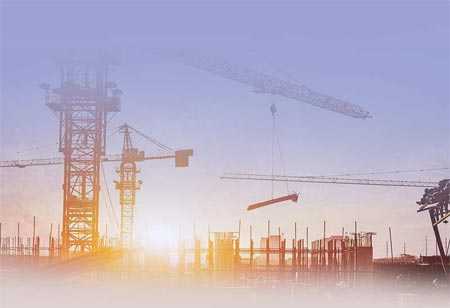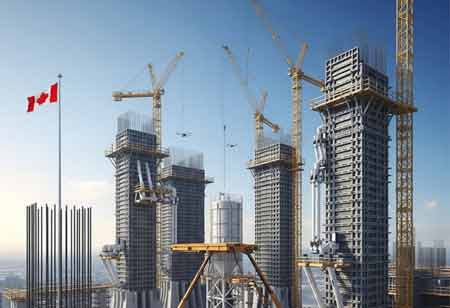Thank you for Subscribing to Construction Business Review Weekly Brief
Specials
- Apartment and Condominium Contractors Canada
- Decking Canada
- Architectural Glass Europe
- MEP APAC
- Construction Saudi Arabia
- German Apartment and Condominium Contractors
- Construction Law APAC
- Outdoor Construction
- Foundation Construction Canada
- MEP Canada
- Kitchen and Bath
- Cold Storage Construction APAC
- Precast Concrete Europe
- Construction Staffing Europe
- Pre-Construction Services
- Flooring System APAC
- Scaffolding Canada
- Swimming Pool Construction Canada
- Construction Management Canada
- Cold Storage Construction Canada
- Flooring Systems Europe
- Residential Construction
- Concrete Canada
- Construction Cladding Europe
- Construction Cladding APAC
- Concretes, Aggregates and Construction Materials APAC
- Concretes, Aggregates and Construction Materials Europe
- Commercial Contractors Europe
- Commercial Contractors APAC
- Dummy
- Construction Insulation, Coating and Waterproofing
- Construction Management APAC
- Landscaping Canada
- Construction Coating Europe
- Construction Tech Startups Europe
- Insulation Services Europe
- Mechanical Contractor Canada
- Mould Remediation and Testing Europe
- Swimming Pool Construction APAC
- Building Sealing Solutions Europe
- Construction Engineering Services
- Mechanical Electrical and Plumbing
- Roofing Systems Europe
- Architectural Glass APAC
- Startups APAC
- Construction Forensic and Owners Representative
- Flooring System
- Waterproofing APAC
- Wall Systems
- Safety and Compliance Europe
- Construction Equipment
- Modular and Prefab Construction
- Architectural Glass
- Construction MENA
- Construction Demolition and Recycling Europe
- Modular Construction Europe
- Construction Interiors
- Steel Building APAC
- HVAC
- Doors and windows
- Modular Construction APAC
- Building Information Modeling APAC
- Sustainable Construction APAC
- Building Restoration and Maintenance
- Commercial Contractors
- Specialty Construction
- Construction Engineering Canada
- Construction Engineering MENA
- Modular Construction Canada
- Construction Demolition Canada
- Roofing and Siding Systems
- Construction Latam
- Construction Staffing
- Roofing Systems APAC
- Construction Consulting
- Steel Building Europe
- Construction Demolition and Recycling APAC
- Safety and Compliance APAC
- Concretes, Aggregates and Construction Materials
- Construction Cladding
MEP Systems: A Cornerstone of Modern Building Design
Mechanical, Electrical, and Plumbing (MEP) systems are the backbone of modern building infrastructure

By
Construction Business Review | Tuesday, February 11, 2025
Stay ahead of the industry with exclusive feature stories on the top companies, expert insights and the latest news delivered straight to your inbox. Subscribe today.
Buildings equipped with modern, efficient MEP systems often have higher property values and greater marketability.
FREMONT, CA: Modern building infrastructure is based on mechanical, electrical, and plumbing (MEP) systems, guaranteeing that structures are safe, comfortable, and functional. The systems include plumbing for water and waste management, electrical wiring and lighting, and heating, ventilation, and air conditioning (HVAC). The integration and optimization of MEP systems provide significant benefits in building design and operation, making them essential in the construction and maintenance of residential, commercial, and industrial structures. The most major benefit of MEP systems is their ability to improve energy efficiency.
Modern MEP systems are designed with energy conservation in mind, incorporating advanced technologies and sustainable practices. HVAC systems can have energy-efficient components such as variable speed drives, high-efficiency chillers, and heat recovery systems. The components reduce energy consumption and lower operational costs. Innovative electrical systems can optimize lighting and power usage. Automated lighting controls, energy-efficient LED lighting, and energy management systems can significantly reduce electricity consumption. Efficient plumbing systems, including low-flow fixtures and water recycling technologies, further contribute to energy savings by reducing water heating and pumping demand.
MEP systems are critical in maintaining indoor air quality and ensuring occupant comfort. Proper ventilation removes pollutants, allergens, and excess moisture from indoor spaces, contributing to healthier living and working conditions. Advanced HVAC systems can also include air filtration and purification technologies, which help eliminate airborne contaminants like dust, pollen, and bacteria. It is essential in environments like hospitals and laboratories, where air quality is crucial for health and safety. Electrical systems within MEP frameworks provide reliable power distribution and ensure the safety of building occupants.





